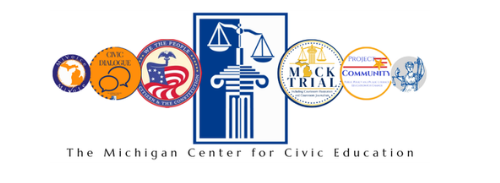Case developed for the 2010 Michigan High School Mock Trial Tournament
Criminal Case-Murder of high school student
Civics Lessons
People v. Alex Johnson
To Amend or Not to Amend, That’s Been the Question…Many Times
This lesson asks students to examine recent proposed amendments to the U.S. Constitution, analyze them for public policy triggering mechanisms, and compare and contrast them to amendments that have been ratified.
Participating in the Jury System
Students participate in activities and discussions about the relationship of a democratic society to its legal institutions, and the issues of fairness and equality under the law and legal system. They learn how constitutional amendments such as the Fourteenth Amendment influence lawsuits, and they will apply concepts within the Bill of Rights to jury trials. Students conduct research to compare the U.S. jury trial system to trial systems in other countries.
Voting in Congress
Students learn what factors members of Congress consider when deciding whether to vote for a bill. These include the powers given to Congress by the Constitution, members’ personal opinions, political party support, and what voters think. During the first day of the lesson, students find out about each of these factors. During the second day, students get to try their hand at weighing the factors by considering hypothetical bills.

